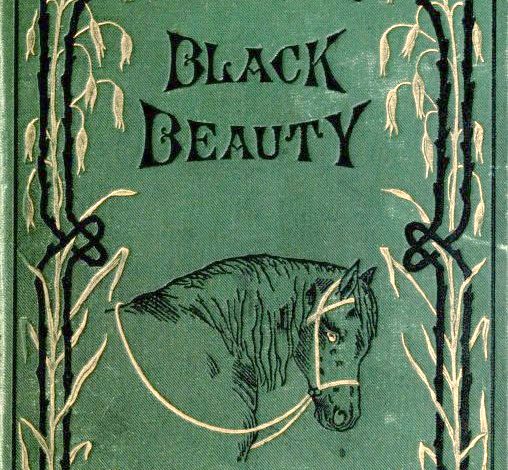Shocked and disappointed
Jenny Phillips, mother of five and founder/owner of The Good and the Beautiful, was jolted into action one day when her daughter came home from school with a friend.
In a November 2019 Youtube video, she shared the unsettling moment ten years earlier when her nine-year-old daughter Kate rejected both her and her freshly-baked snack. Jenny recalled, “I was excited to see her. She was with her friend, and she said, ‘Hey, can I go play with my friend?’ and I said, ‘Sure, but why don’t you come on in and we’ll have some family time first’.”
Then Jenny tells of the crushing response, “Her and her friend looked at each other and rolled their eyes, and my daughter goes, ‘Family time? I don’t need family time,’ and she walked away.”
Having always placed emphasis on building good character, and previously filtered out negative media in her children’s lives, Jenny was at a loss as to where this rude behavior was coming from. She stumbled upon the answer that very night.
Disrespectful behavior encouraged as humorous in modern literature
“I was cleaning up some things in my daughter’s bedroom, and she had a book that was open, and a couple lines caught my attention…it was about a girl who was rolling her eyes at her parents, and talking about how annoying her siblings were.”
As Kate was an avid reader herself, she had lots of books and was reading all the time. Jenny started looking at the other books in her room and found that they all contained similar disrespectful and rude family interactions.
Upon her discovery, Jenny decided that, in order to protect Kate’s character, she needed to review each and every book her daughter read. This was no easy task. For every one book that she found appropriate, there were 25 or more that were not. She kept a list of the books that her daughter was allowed to read, and followed through with her mission, even when it was unpleasant.
For a long while, Kate would complain that the chosen books were “boring,” compared with the fast-paced, easy-read, low-level literature she was used to. Jenny even resorted to paying her to read good books, in lieu of an allowance. After two years, Kate’s attitude completely reversed and she not only appreciated the approved, wholesome books, but devoured them.
Kate’s three younger siblings followed in her footsteps in their love of good books, and were soon able to discern for themselves what was inappropriate reading.
The Good and the Beautiful
A huge amount of time and effort went into the filtering process. Jenny was reading constantly to keep a supply of suitable books on her list. Realizing that many parents were likely in the same situation but did not have the luxury to spend so much time on extensive book reviews, Jenny decided to share her work.
In the meantime, as she was scouring the literature her daughter read at home, she discovered that Kate’s teachers were reading books with unwholesome content aloud in the classroom, undermining her efforts. She and her husband decided it would be better to homeschool their children rather than continue to pollute their minds.
 Cover of the first edition of the classic children’s book “Black Beauty,” published 1877. This is one of over 700 books listed by The Good and the Beautiful as wholesome and “nutritious” reading for children. (Image: Wikimedia Commons public domain)
Cover of the first edition of the classic children’s book “Black Beauty,” published 1877. This is one of over 700 books listed by The Good and the Beautiful as wholesome and “nutritious” reading for children. (Image: Wikimedia Commons public domain)Cover of the first edition of the classic children’s book “Black Beauty,” published 1877. This is one of over 700 books listed by The Good and the Beautiful as wholesome and “nutritious’ reading for children. (Image: Wikimedia Commons public domain)
This led to the birth of the Good and the Beautiful, a successful homeschool curriculum company. Not only had Jenny gathered hundreds of books to nourish and re-sensitize her children, she also formed a curriculum for their schooling. The Good and the Beautiful is a collection of the valuable resources that she found and created on her journey.
Jenny has also published several videos aimed at helping parents realize what their children are reading, and how it affects their behavior. Books did not turn bad overnight, however, and most parents themselves are desensitized, making it difficult to even recognize the problem at hand. Jenny took it upon herself to examine the trends in literature over the past two centuries and expose the harmful content so prevalent in today’s “recommended” reading.
A progression toward mediocrity, or worse
In one of her videos, How Books Have Changed, Jenny charts the reduction of moral lessons in books from 1810 to 1950. In 150 years of literature, the number of pages out of 25 that emphasized a moral lesson dropped from 16.1 to 0.6.
She also compares the first five sentences of best selling classics from 1877, with best sellers in 2019. While the classics were rich in figurative language, broad in vocabulary, and boasted a complex sentence structure, exceeding 20 to 30 words per sentence; the modern best sellers lacked all of the above, with the first five sentences in total using only 20 to 30 words.
In essence, books have been dumbed down, and no longer require one to think. Complex sentence structure requires the brain to work, thereby improving memory, focus, and attention span. Modern books rely, instead on shallow, often corruptive means to hold the reader’s attention.
Jenny asserts that this is not a small problem, and suggests that our whole nation of children are in grave danger of losing their moral compass. As a result of desensitization to rude and disrespectful behavior, children are turning away from their parents and God as their natural and loving guides. When violence and unkindness are portrayed as humorous and acceptable, what is there to lead them back to goodness?
 A love of good books will instill strong moral values, improve memory and concentration, and foster healthy, positive social relationships. (Image: Victoria Borodinova via Pexels CC 0)
A love of good books will instill strong moral values, improve memory and concentration, and foster healthy, positive social relationships. (Image: Victoria Borodinova via Pexels CC 0)Based on her own experience with her daughter, Jenny firmly believes that books have the power to shape minds. She offers her reading list of collected titles and authors that passed her strict filter, for free online, with the hope that this will help other parents take the brave step to guide their children back to traditional moral values.
The Good and the Beautiful booklist includes reviews and information on over 700 titles ranging from grades K to 12. Many of the publications are classics from long ago, with those that were out of print having been re-published by the Good and the Beautiful.
As Edwin Paxton Hood advised, “Be as careful of the books you read, as of the company you keep; for your habits and character will be as much influenced by the former as by the latter.”
Author: Ila Bonczek
No comments:
Post a Comment